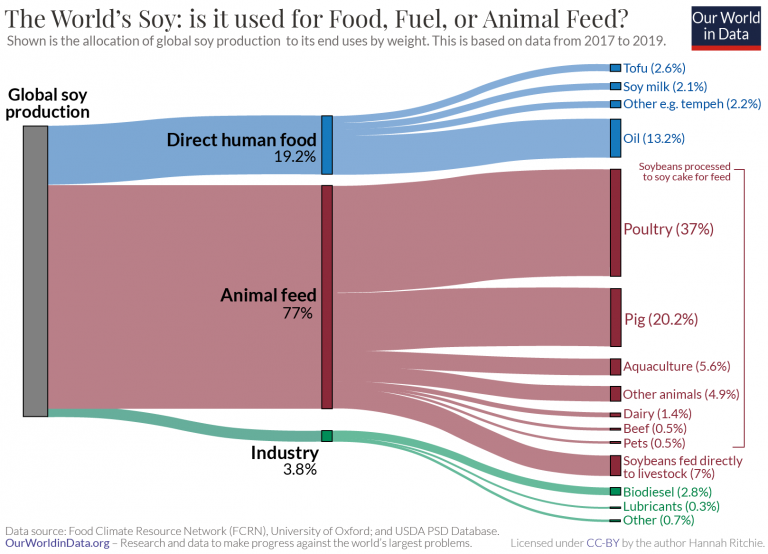I mean if it takes multiple pounds of soy per pound of beef yeah, the anti soy chuds need to learn about biomagnification of mercury and fish and let them know how meat is just concentrated soy chemicals.
In a study published in Science, Alexandra Tyukavina et al. (2017) look at the drivers of forest loss in the Brazilian Legal Amazon. The change in these drivers from 2000 to 2013 is shown in the chart. Note that this overall trend suggests a major decline in forest loss since 2000 – unfortunately in the years since 2013, rates have increased again. From this, we would conclude that the dominant driver of deforestation in the Brazilian Amazon was the expansion of pasture for beef production If we look at forest loss from commercial crops – which is mainly soybeans – we see a significant decline, especially following the introduction of ‘Brazil’s Soy Moratorium’. The ‘Soy Moratorium’ was a campaign involving civil agencies and soybean companies, which stipulated that farmers who grew soy on illegal or legal deforestation areas would not be able to sell them to suppliers. Since 2009, satellite imagery has been used to help to identify soybean crops being grown on deforested areas.
Soy may no longer be a direct driver of deforestation in the Brazilian Amazon. But we should also think about the indirect impacts of increased production. We know that the area being used to grow soy is still increasing, and that land has to come from somewhere. In particular regions, such as Mato Grosso, studies have found that instead of replacing forest, these croplands are replacing pasture. If this pasture land is simply shifting into forested areas, we could argue that soy is still a major underlying cause of deforestation.
Whilst the expansion of pasture for beef production is the leading driver of deforestation in Brazil, soy still plays a significant role when we take its indirect impacts into account. To end deforestation, there are a couple of key actions we can take. For consumers, since most deforestation is driven by expanding pastures for beef, or soy to feed poultry and pigs, reducing meat consumption is an effective way to make a difference For companies and regulators, zero-deforestation policies must be more widely implemented (i.e. not only focused on the Amazon) and must be more carefully designed to take spillover effects into account.
:bean-think: :im-vegan:



